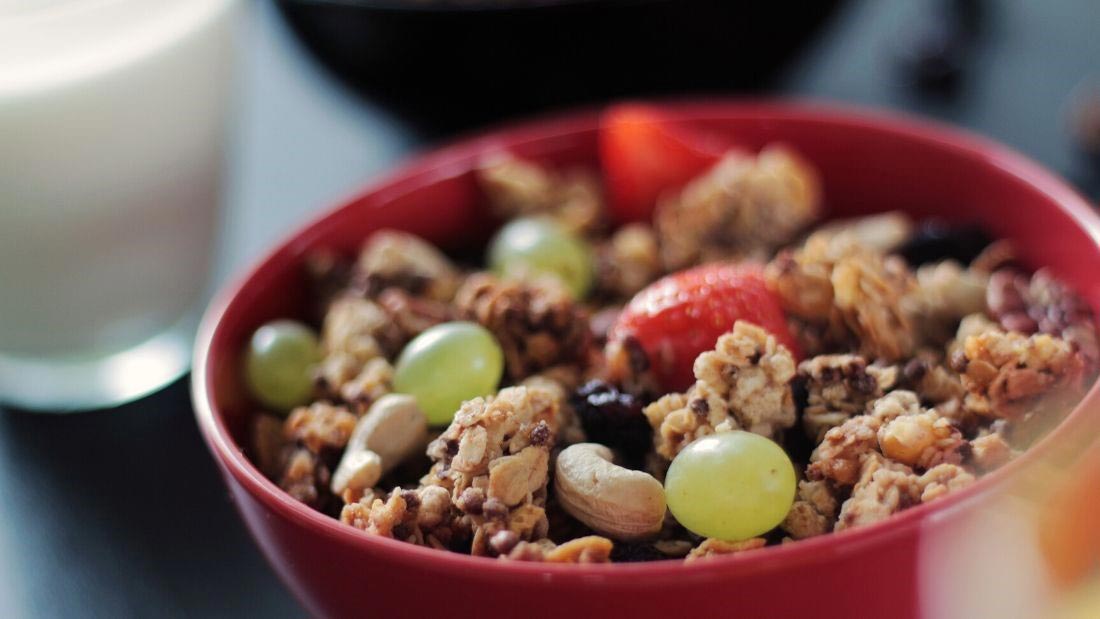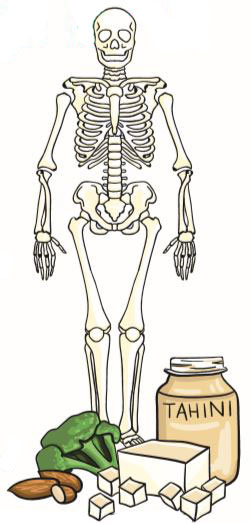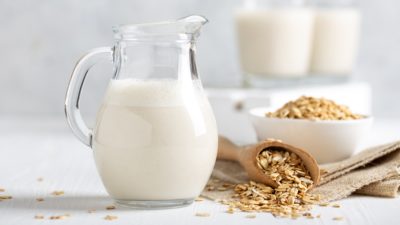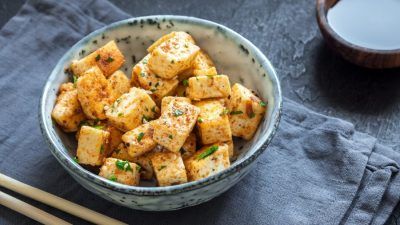Calcium and the vegan diet – beyond the dairy myth

We all know calcium is crucial for strong bones and teeth and for decades, the dairy industry has told us this is why we need cow’s milk. So what about vegans? Do they miss out on this vital mineral? Absolutely not!
While calcium is indeed a cornerstone for good bone health, its roles extend far beyond just that. This essential mineral is a powerhouse, playing critical roles in muscle function, nerve transmission, intracellular signaling and even hormone formation.
Vegan calcium: busting the myth
The good news for vegans is that plant foods offer an abundance of calcium sources. You don’t need cow’s milk to meet your daily requirements. In fact, many plant foods offer highly bioavailable calcium, often alongside other beneficial nutrients like vitamin K and magnesium, which also contribute to bone health.
Bone health
If you look at fracture rates around the world, it becomes apparent that some of the highest dairy-consuming countries also have high fracture rates, particularly hip fractures. There is no clear evidence that cow’s milk and dairy products are essential for bone health and there are plenty of excellent plant-based sources of calcium. Of course, this makes sense as around 70 per cent of the world’s population are lactose intolerant and get their calcium from non-dairy sources.
Deficiency
Signs of deficiency include muscle spasms or cramps, confusion, tiredness, fainting, numbness and tingling in hands, feet and face, brittle nails, tooth decay and fragile bones. A prolonged lack of calcium could lead to rickets in children, osteomalacia in adults and osteoporosis in later life. Osteoporosis affects over 3.5 million people in the UK and the Royal Osteoporosis Society says that half of women and 20 per cent of men over 50 will break a bone because of osteoporosis. Risk factors include not just diet, but also family history, gender, ethnicity, smoking, excessive alcohol and lack of exercise. There is plenty you can do to protect your bones – but you don’t need dairy!
 Vitamin D
Vitamin D
Calcium is the building block for bones and your bones and teeth contain 99 per cent of all the calcium in your body. But calcium can only build bones properly if your body has enough vitamin D, because this helps calcium absorption. Even if you eat plenty of calcium, it could go to waste if you’re not getting enough vitamin D. In spring and summer, most people in the UK get enough through the action of sunlight on the skin, but in the winter months a supplement may be needed. The government recommends 10 micrograms a day.
Find out more about vitamin D here.
Our bodies continually remove small amounts of calcium from our bones (resorption) and replace it with new calcium (ossification) and because of this constant bone remodelling, we need a regular, but not excessive, supply of calcium.
Other nutrients
Bone health depends on more than just calcium and vitamin D. Vitamins A, C, K and the B group, along with the minerals magnesium, potassium, iron, zinc and others are also essential. A varied plant-based diet can provide all these, along with your B12 (and maybe vitamin D) supplement.
Damaging dairy
Official guidelines say that adults need around 700 milligrams of calcium a day and that you should be able to get that from your daily diet. It’s better to get your calcium from a healthy, varied, vegan diet and avoid calcium supplements unless you’ve been given specific advice from your doctor or consultant to take them as some research suggests calcium supplements may slightly increase the risk of cardiovascular disease.
How much are we getting?
The most recent (2020) National Diet and Nutrition Survey found that overall, most people in the UK get enough calcium. However, some groups fell short – around 15 per cent of children and teens ages 11 to 18 years, nine per cent of women aged 19 to 74 and four per cent of women over 75 years were not meeting the daily recommended amounts.
Top vegan caclcium sources
- Leafy greens such as kale, spring (collard) greens and broccoli are calcium superstars
- Calcium-set tofu (check the ingredients for calcium sulphate) and tempeh
- Fortified vegan breakfast cereals (eg Ready Brek), check the labels as some cereals contain vitamin D3 from animal sources
- Fortified plant-based yoghurts and milks such as soya and oat and milks
- Nuts and seeds such as almonds, sesame seeds (tahini) and chia seeds
Spinach, chard and beet greens contain relatively high amounts of calcium but also contain a substance called oxalate, which hinders absorption. It’s better to get your calcium from green vegetables low in oxalate such as kale, broccoli and bok choy. The calcium in these can be absorbed up to twice as well as the calcium in cow’s milk but they also contain fibre, folate and iron – nutrients lacking in dairy.
Don’t let outdated myths about dairy deter you; a well-planned vegan diet can easily provide all the calcium you need for good health!
Other ways to improve your bone health include not smoking or drinking, cutting down on tea and coffee as caffeine slows absorption, reducing your salt intake, exposing yourself to sunlight (but avoid burning) and ensuring you have fortified foods such as soya milk and margarine.
Lastly, take physical exercise – particularly weight-bearing exercise such as walking, running, dancing or climbing the stairs is perhaps the most important protective factor for bones. Use ‘em or lose ‘em!







